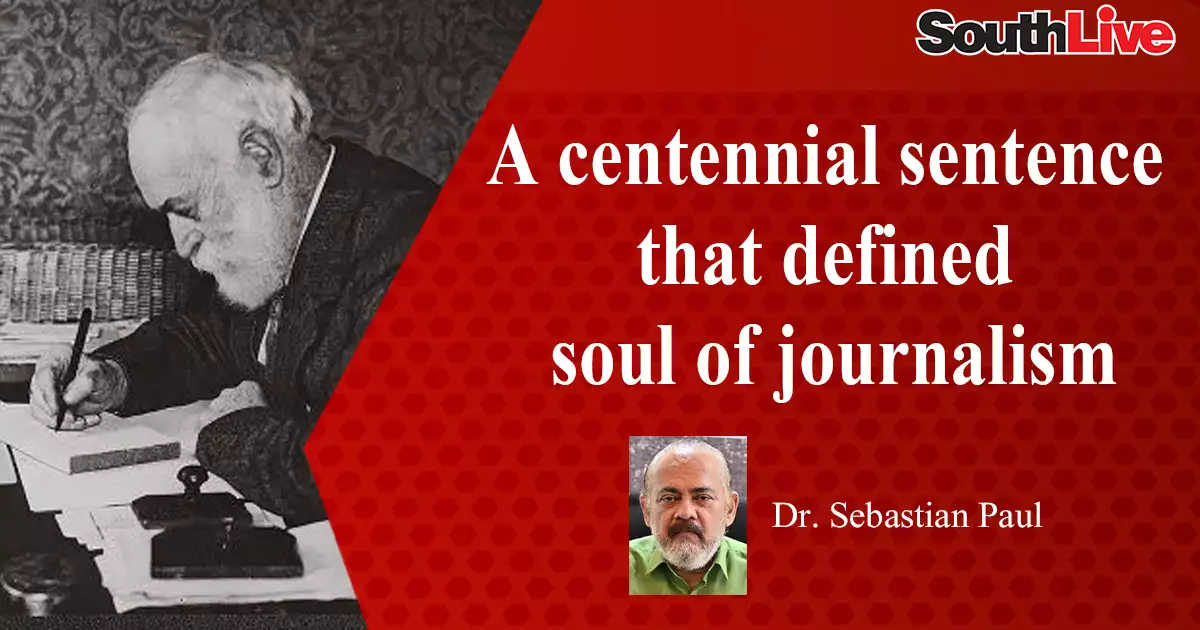Sebastian Paul
It was hundred years ago that an illustrious British editor famously wrote a simple sentence: Comment is free, but facts are sacred. That seminal sentence, buried inconspicuously in a somewhat lengthy leading article to mark the centenary of an influential newspaper with an international reputation, was exhumed and revered as a venerable journalistic relic in umpteen numbers of journalism articles and lectures. The essay, published on May 5, 1921 under the headline “A Hundred Years,” is still recognised around the world as the blueprint for independent journalism. The essayist, Charles Prestwich Scott, usually cited as C P Scott, was the editor of Manchester Guardian (known as The Guardian since 1959) for 57 years. He was made editor at the age of 26 and later he purchased the paper and made it one of the world’s most respected papers, enlisting outstanding editorial support from John Masefield, John Maynard Keynes and Arnold Toynbee. Owned by the Scott Trust, the paper takes an independent liberal stance in its editorials while maintaining great breadth and depth of news coverage.
The centenary of a simple sentence plucked from a centenary article should be a unique occasion for celebration as it is cited in journalism classes all over the world as the most simplified but meaningful mascot for an independent and impartial newspaper. Apart from being a journalist, Scott was a politician supporting the Zionist cause. But that did not deter him from meticulously following his own principle. His newspaper carried unbiased news and expressed views without distorting facts. Scott was of the view that the “primary office” of a newspaper was accurate news reporting. This is reflected in his sanctification of facts which constitute news. Undistorted facts constitute good news. Even editorial comment has its responsibilities. Scott believed that a newspaper should have a “soul of its own”. That is defined, preserved and salvaged by free but responsible comments and pristine facts. Ultimately it is the essence of credibility on which the entire edifice of a newspaper is built.
When Scott was meticulously pursuing his apostolic work with missionary zeal in defining the soul of newspaper, another contemporary publisher, who carved out a niche for him by instituting a prize in his name, was at loggerheads with another publisher which ultimately produced an equally perennial term – “yellow journalism”. Joseph Pulitzer of New York World, in fierce competition with William Randolph Hearst of New York Morning Journal, helped to establish the pattern of the modern newspaper by combining exposes of political corruption and crusading investigative reporting with publicity stunts, self-advertising and sensationalism. What was propounded in the process was blatant sensationalistic journalism attracting mass readership. The majority practices yellow journalism but professes the Scott dictum.
For getting a Pulitzer you have to follow Scott. An irony indeed!
The Press should be free and responsible — free in comment but responsible in reporting. That is the essence of the Scott dictum. That is the quintessence of media ethics and morality.
Read more
The writer is a former member of the Press Council of India.








